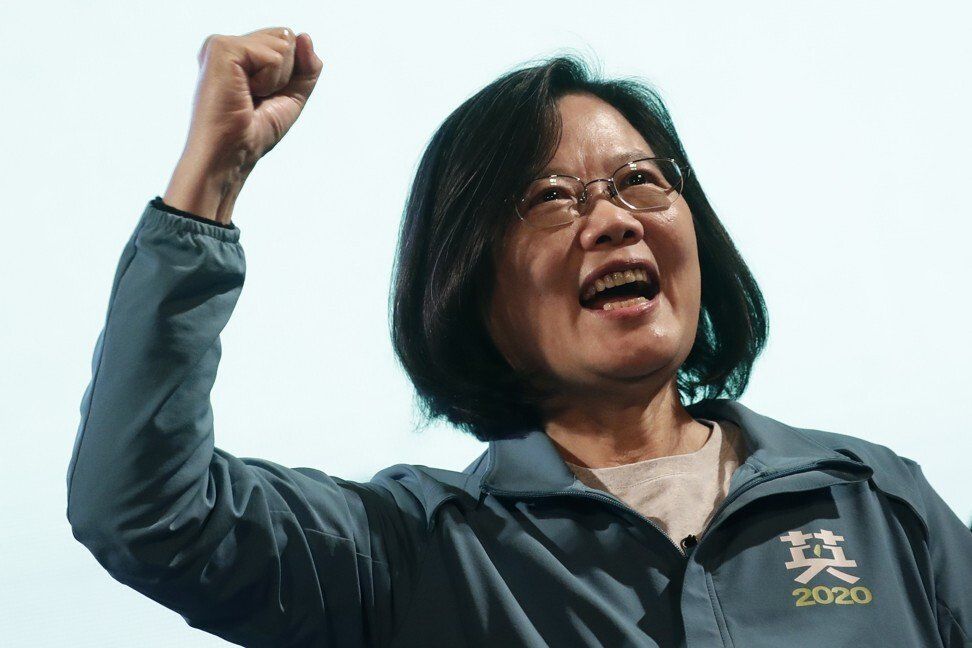Hong Kong News

Hong Kong schools remove books that may pose national security law risk
Hong Kong schools are removing books from their libraries over the summer break that may violate the national security law, including titles targeted by pro-Beijing media and those broaching sensitive topics such as Taiwan.
In the absence of an official list of banned books, librarians fearful of crossing red lines told the Post they had adopted a more cautious approach to screening their collections.
Some report they are even questioning whether to take works such as George Orwell’s Animal Farm off the shelves for their portrayal of totalitarian regimes.
Books written by prominent opposition political figures arrested under the Beijing-decreed national security legislation and publications marked “controversial” by pro-Beijing media could be at risk, the librarians said.
At least one school has already removed the biography of Taiwanese President Tsai Ing-wen and another took down a historical account of Kuomintang soldiers defeated by the Communists seeking refuge in Hong Kong.
“As teacher-librarians, we would rather be more cautious,” said Susanna Lau Po-shan, who has held the role in several subsidised schools over the past two decades. “We would not want to give up our own safety amid controversies.”
Within days of the national security law taking effect in June last year, education officials were telling schools to get rid of reading material that could “possibly violate” the legislation, although no clear guidelines were provided.
The law – banning acts of secession, subversion, terrorism and collusion with foreign forces – carries a maximum penalty of life imprisonment and requires schools and universities to promote national security education.
Lau, convenor of a concern group representing teacher-librarians from about 150 schools, said that without clear guidelines, schools could only decide whether to remove titles by applying their own standards.
She planned at her school to remove books written by politicians arrested on suspicion of breaching the security law.
Lau also said one of the books removed from her school library’s shelves covered the history of a Hong Kong town which was once a refuge for Kuomintang soldiers fleeing mainland China after losing the civil war in the late 1940s to the Communists.
“I was a bit worried as the book discussed [Kuomintang soldiers] fleeing to Hong Kong and seeking refuge in Tiu Keng Leng … Part of the book also mentioned them being ‘persecuted by those in power’. It seemed safest that I remove this title,” she said, adding it was a “difficult call”.
Another teacher-librarian from a primary school said his library pulled down titles including a Chinese-language book on human rights and legal protections co-published by former Department of Justice prosecutor, Eric Yung Tat-yeung. Pro-Beijing newspapers had accused the book of teaching youngsters “to avoid legal pitfalls”.
A biography about Tsai written by a veteran Taiwanese financial journalist covering her election was also being removed from shelves, he said, citing fears of breaching the law “as it discussed Taiwan electing their own president”. Beijing sees the self-ruled island as a breakaway province.
 Taiwanese President Tsai Ing-wen.
Taiwanese President Tsai Ing-wen.
The librarian added that some schools were even considering removing a translated version of a Spanish illustrated title written by author Equipo Plantel called Así es la Dictadura, meaning “That is dictatorship”, which touched on how a dictator affected different kinds of freedoms, while also displaying a list of world leaders such as Mao Zedong, Saddam Hussein and Kim Jong-il.
Lui Chi-kong, president of the Quality Library Network who served as a teacher-librarian at several schools for more than 40 years, said books on the 1989 Tiananmen Square crackdown, as well as George Orwell’s Animal Farm and 1984, were being considered for removal, among others.
Over the past year, public libraries have pulled at least 89 titles pending review of whether they run afoul of the security law, including several books written by localist Horace Chin Wan-kan, youth activist Joshua Wong Chi-fung and former opposition lawmaker Tanya Chan.
In a reply to the Post, the Education Bureau suggested schools follow the decisions taken by public libraries to remove titles from their campus collections.
But neither the bureau nor the Leisure and Cultural Services Department have provided a banned books list.
Last month, the department launched an inquiry after a public library displayed books by jailed Apple Daily founder Jimmy Lai Chee-ying as “the librarian’s choice”. The media tycoon has been arrested on multiple charges under the national security legislation.
The city’s eight publicly funded universities have not responded to Post inquiries on whether they would remove any books from their collections over security law concerns.
But a check of several universities’ online library catalogues showed that titles known to have been removed from public libraries were still available.
Wong Wai-shing, deputy principal of Pui Kiu College, called on authorities to provide a list of books that should be banned from school libraries so educators would “not fall into traps easily”.
A secondary school principal, who asked to remain anonymous, said he believed there was “no need to overreact”, adding his school had so far not removed any titles following a review of their library’s inventory numbering thousands of books.
“As long as authorities do not list out books which schools must remove, we will treat that with a business-as-usual mentality,” the principal said.
He added: “We don’t plan to remove books just because the author has been arrested under the security law. Even if they have been arrested, many of them are not yet convicted. If their conviction is not directly related to their books, I don’t see why we have to do so.”











